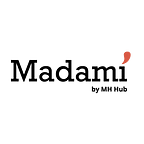In the summer of 2020, the world underwent a racial reckoning in the wake of the murder of George Floyd, leading to increased awareness and engagement with gross racial inequality and the #BlackLivesMatter movement. As two Americans on opposite sides of the globe, we, Minhtam (in New York, USA) and Danielle (in Berlin, Germany), discussed our horror and anger at the state of the world and the general apathy we were seeing around racial justice.
In the aftermath, a well-known leader of a popular youth activist NGO in the US was accused of demonstrating anti-black behavior within the menstrual justice movement. This naturally piqued our interest because unlike many of the other racist call-outs happening at this time, this particular leader was Asian American, not white. This article and its subsequent support brought up larger questions about accountability, steamrolling and plagiarism in the menstrual health space, a discussion we wanted to explore with a racial equity lens.
Many of the initial conversations we had stemmed from our observations on social media, where we saw lots of performative activism. As individuals and within our organization, we wanted to do more than post just black squares and inspiring quotes over the faces of murdered black Americans. We wanted to think critically about our own motivations as Madami / the MH Hub as well as be intentional with how we moved forward. As an international nonprofit focused on the global menstrual health community, what could we do to meaningfully address these heavy cultural issues?
Our conversations lead us to seek out purposeful conversations with women of color and BIPOC identifying individuals in the space, and center their voices and experiences on our platform. Many of them had felt that, while the menstrual movement was growing, they were being left out of what was becoming more mainstream conversations about period poverty or menstrual equity.
We wanted to hear their perspectives. We wanted to hear about if and how their identity influenced them to get involved with menstrual health or how it informed their approach.
Our main goal with engaging marginalized changemakers in the MH space is to challenge the ways in which western, colonial attitudes have influenced what we accept as normal menstrual health and hygiene.
What could we learn — and incorporate — as the menstrual health sector grows? As one of the leading menstrual health collective impact organizations, how could elevating their voices help to improve racial or social equity in a meaningful way?
At Madami / Menstrual Health Hub, we pride ourselves on providing an open space for anyone, anywhere interested in or working in menstrual health to access a wealth of free resources around menstrual health. For us, collective impact means highlighting the amazing work of those in the space so that their approaches can be considered in the larger, institutional changes that are needed to prioritize menstrual health at all levels of society.
‘Decolonizing Menstrual Health’ is a project that directs interested members of our global community to organizations, activists, advocates, and changemakers in the menstrual health space.
As an organization, we want to be thoughtful about developing our role in the movement towards intersectionality and ensure that we are working towards long-term social change rather than just performative activism. We believe that honesty and transparency of our intentions is essential. We are always looking to listen to and learn from others and use this community platform as a collective impact tool that can empower and highlight inspiring individuals, organizations, projects and campaigns doing their important part to make menstruation matter.
We are grateful to aisle, who partnered with us and helped us interview Indigenous individuals, primarily in a Canadian context. The project has two distinct threads: from both a geographic perspective (a majority US vs. Canada focus), as well as focus on traditional and Indigenous wisdom versus advocacy from a racial justice lens. We believe that both of these perspectives are imperative to address the issue of decolonizing the menstrual health space. Future versions of the project may branch out to feature individuals working on menstrual health from different parts of the world.
The Decolonizing Menstrual Health project seeks to address the ways in which historical systems of oppression have created a dominant way of approaching menstrual health, explore inequalities within the menstrual health sector, and learn from thought leaders in the space for how we can better address these issues. These historical systems of oppression are umbrellaed by the term ‘colonialism’, but affect populations in different ways.
This project has given us an amazing opportunity to interview badass changemakers and learn from their work. As individuals and as an organization, we must do more to highlight and support others outside the realm of the mainstream, mostly white menstrual movement. As we move forward, we hope to find funding partners to expand the project to different themes, i.e. decolonizing aid within menstrual health movement, decolonizing research, policy etc.
We hope that this project provides a learning opportunity for all of us to think more critically about menstrual health and the role of identity. We hope that by using our platform to highlight these changemakers, they can continue their leadership in the menstrual movement, thus enabling the movement itself to become more intersectional overall.
We extend our endless gratitude to all those who participated in the project, for their emotional labor and the work they continue to do to advocate for their communities.
In solidarity,
Minhtam and Danielle
Minhtam Tran was an Education and Research Fellow for the Menstrual Health Hub (MH Hub) and served as the Project Manager for the ‘Decolonizing Menstrual Health’ Project. Danielle Keiser is the Managing Director, Impact at Madami. The MH Hub is the networking and knowledge platform of Madami.
